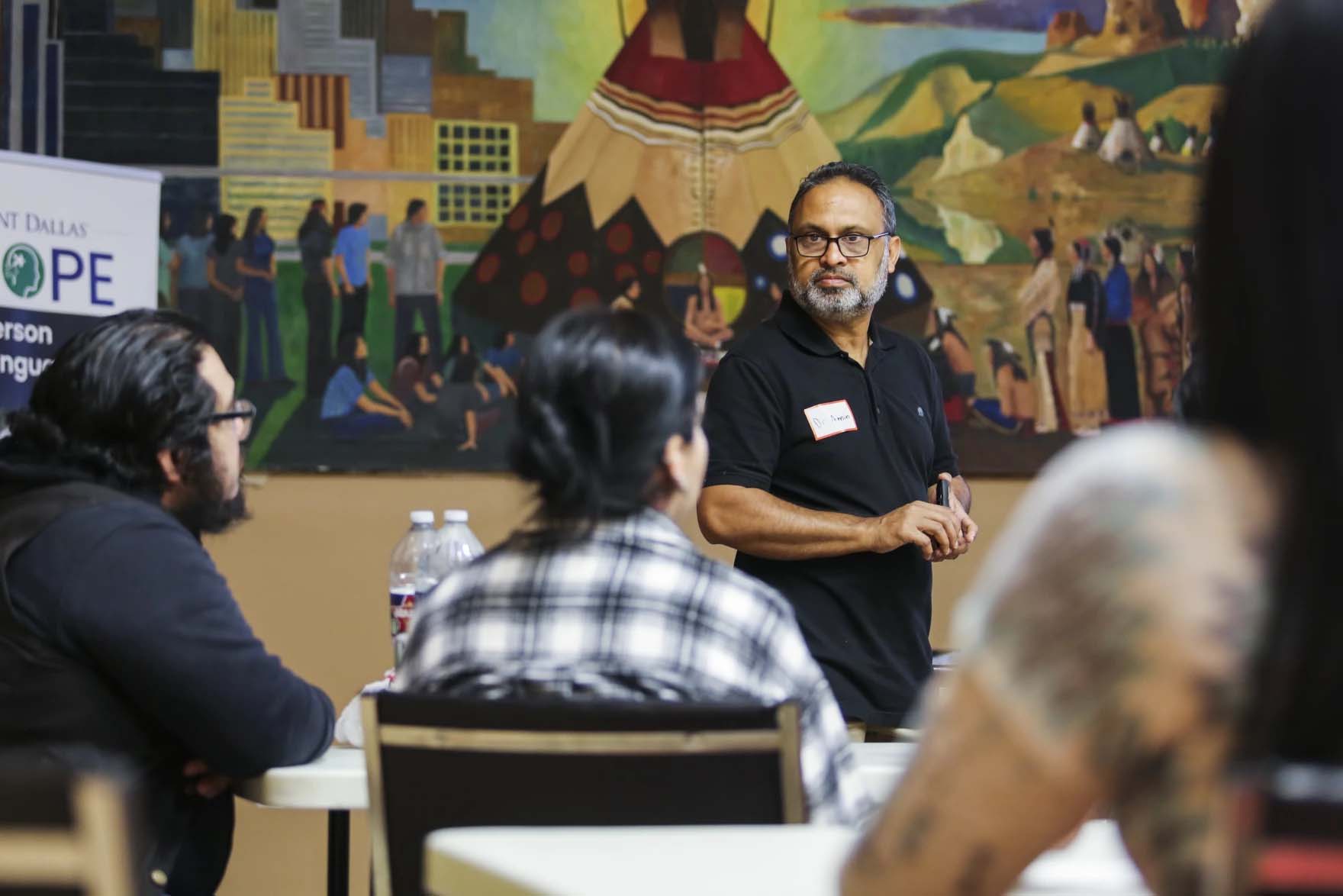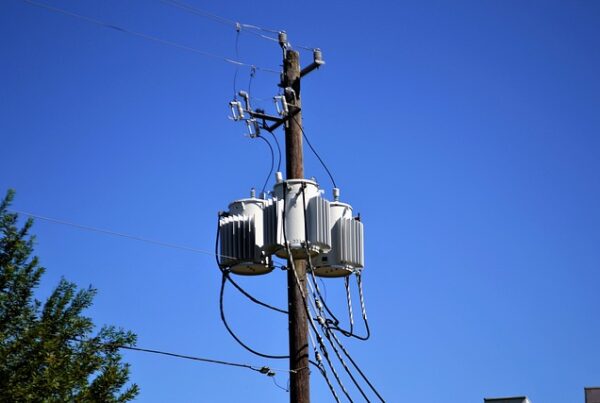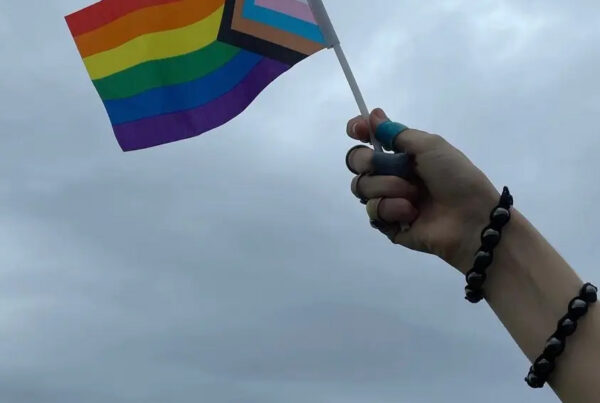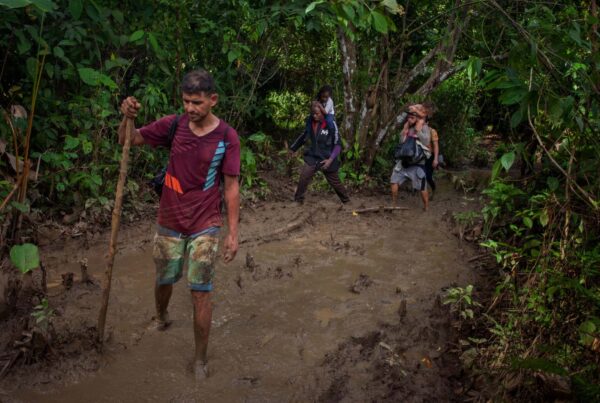From KERA News:
For resources and support, call 988 to reach the Suicide and Crisis Lifeline, or text NATIVE to 741741 to reach a crisis counselor on the Crisis Text Line.
Native Americans in the United States experience higher rates of mental health issues than their white counterparts. But finding a therapist in Texas who shares and understands a person’s Native American identity can be a challenge.
That’s where Texas Native Health comes in—The Dallas clinic and community center has been working to expand mental health services and training its staff to address issues before they become a crisis.
Back in February, employees packed the back room of Texas Native Health for a mental health first aid training. The training was held in partnership with the University of North Texas at Dallas, which received a five-year grant from the Substance Abuse and Mental Health Services Administration to build behavioral health support in south Dallas.
The goal of mental health first aid, said UNT associate professor Syeda Jesmin, is to equip people with the tools they need to de-escalate a mental health crisis and connect the person in crisis with support services. The training helps explain the signs and symptoms of panic attacks, for example, in an approachable way rather than a clinical one.
“Language is a big issue,” Jesmin said. “It is difficult how things are lost in translation. Our goal is to create this awareness [so] people become culturally sensitive.”
The mental health first aid training is one way Texas Native Health is providing mental health care to Indigenous people in the state. The majority of Native Americans “live outside federal or state reservations,” and Texas Native Health works with any enrolled tribal member who lives in the state.
According to data from the U.S. Census Bureau, a little less than 1% of Texas’ population, or around 230,000 people, identify as Native American or Alaska Native.
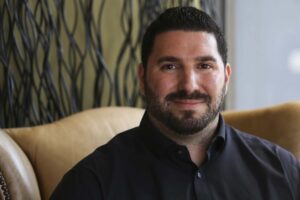
Omer Tamir is the chief executive officer at Texas Native Health in Dallas.
Yfat Yossifor / KERA
The clinic sees between 3,000 and 5,000 patients a year, according to Chief Executive Officer Omer Tamir. In 2022, there were close to 650 behavioral health and substance use visits.
Impact of colonization and historical trauma on Native American mental health
Dora Brought Plenty, an artist and designer, has been coming to the clinic since the 1970s. At 21, she was looking to process the experiences she had at a Native American boarding school as a kid.
Federal boarding schools, which started back in 1819, were created by the government to “culturally assimilate American Indian, Alaska Native, and Native Hawaiian children by forcibly removing them from their families” and communities, according to the U.S. Department of the Interior. In 2021, the department established the Indian Boarding School Initiative to investigate the physical and emotional abuse at these schools, and their wide-ranging health impacts on people today.
“Being mistreated and going through all the abuse in the Indian boarding schools, it changes the whole dynamics of who we are,” Brought Plenty said.
A 2022 report from the initiative said that along with chronic health conditions like cancer and diabetes, adults who had been forced to attend boarding schools experienced “increased risk for PTSD, depression, and unresolved grief.” Brought Plenty said mental health practitioners she saw before coming to Texas Native Health “had not a clue how to teach or treat us.”
“Had I not had this safe haven to come back to every time, I don’t know if I’d even been here,” she said.
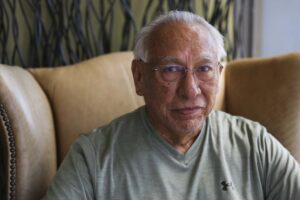
Mike Frazier is a counselor at Texas Native Health in Dallas.
Yfat Yossifor / KERA
The American Psychological Association (APA) adopted guidelines in 2018 to help mental health professionals provide culturally relevant services, which include recognizing and understanding “historical and contemporary experiences with power, privilege and oppression.” But UNT associate professor Syeda Jesmin said cultural sensitivity isn’t always a part of the western model of health care.
“The history of generational trauma, the experience of poverty, unemployment, discrimination, lack of health care—if someone doesn’t know these things, it is unlikely that the care will be provided with respect,” she said.
There’s also a lack of Native American therapists—the latest data from the APA reported that more than 80% of therapists were white. Native American and Alaska Native therapists made up .13% of the workforce.
What the government did to Native communities “is going to take generations to heal,” Brought Plenty said, and she’s seen the impact it’s had on her family.
“There’s a healing you have to go through,” she said. “And it’s so sad. But we’re still here. That’s the main thing. And we’re able to help each other now through it.”
Culturally relevant behavioral health support
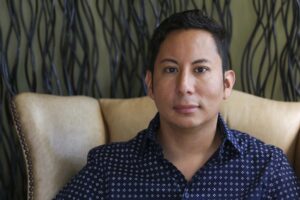
Chris Logan is a counselor at Texas Native Health in Dallas.
Yfat Yossifor / KERA
Chris Logan, who’s a licensed professional counselor with Texas Native Health, said clients who come to the clinic are looking for support with everything from life adjustments to processing experiences at Native American boarding schools, like Dora Brought Plenty. He said the staff are trained to look at the way traumas have been passed down through generations.
“Clients specifically come to us because this is an environment where they feel comfortable,” Logan said. “So many Native Americans [in Texas] either live away from reservations or don’t have resources to go back to reservations to see a therapist.”
He said it’s “pretty rare” to encounter a therapist in Dallas-Fort Worth who’s worked with Native Americans specifically. It’s why it was important to have the staff go through mental health first aid training earlier this year, and why the clinic is working on expanding its services.
“We’re only human beings,” Logan said. “We can only handle so many things at any given point. We may need someone to talk to. There’s nothing wrong with that at all.”
Texas Native Health now offers more trauma-informed therapy, like EMDR and somatic experiencing therapy. EMDR started in the 1980s to treat PTSD. It involves bringing up unprocessed, negative memories to lessen their symptoms.
Similarly, somatic experiencing therapy is focused on helping clients identify the physical symptoms in their body when reliving a stressful or traumatic experience, and lessen distress gradually over time.

Martha Harmon is a counselor at Texas Native Health in Dallas.
Yfat Yossifor / KERA
Logan also said his team has introduced a healing circle, a support group led by a clinician that meets about once a month.
“I have so many people come in there to talk about issues that are really deep-seated,” he said. “It gives them an avenue to speak about [their issues, and] get support from like-minded community members.”
The benefit to coming to Texas Native Health, said Logan, is that “we’re literally like a one-stop shop.” Clients can see doctors for physical health concerns, but also receive rental support, dental care, employment training, and attend community events.
“They can get all their needs met and then go back home without having to go to a doctor in Oak Cliff, and then dentist in Plano, or a therapist in Austin,” he said. “It’s a lot easier for them to come in [and] have everything under one roof.”
For Dora Brought Plenty, the organization has been her safe place since she was in her 20s. Now in her 70s, she’s encouraging younger generations to do the same.
“I know we’re a strong people,” she said, “but we’ve got to be able to find the help.”
Mental health appointments with Texas Native Health are available Monday through Friday, from 8 a.m. to 5 p.m. Call 214-941-1050 to make an appointment and fill out a short intake form to get scheduled.


